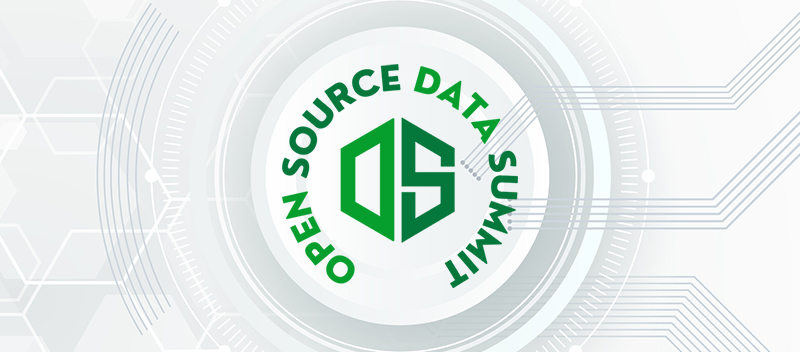Blog How Does Open Source Data Change The Cyberdefense Game (Open Source Data Summit 2023)
How Does Open Source Data Change The Cyberdefense Game (Open Source Data Summit 2023)

The Open Source Data Summit 2023 was a live virtual summit held on November 15th, 2023. This premier event united open-source developers, technologists, and community leaders to collaborate, share information, and solve real-world problems.
Open source data refers to data that anyone can freely use, modify, and share for any purpose. It’s a type of data available in the public domain, allowing individuals and organizations alike to access and utilize it.
When it comes to cybersecurity, open-source data plays a crucial role. For instance, threat intelligence data can be gathered from various open sources and analyzed to predict and prevent potential cyber threats.
Building off the insights shared at the Open Source Data Summit 2023, TrustNet’s expertise in cybersecurity and compliance is particularly relevant. With open-source data now a key component of cyber defense strategies, TrustNet’s advanced capabilities can help organizations leverage this information effectively and securely.
Why Individuals and Businesses Should Care About Extending Knowledge of Open Source Data
The importance of understanding open-source data extends to both individuals and businesses operating in today’s digital landscape. Here are some key reasons why increasing knowledge in this area is crucial:
- Enhances Innovation: Open-source data promotes innovation by providing resources that can be built upon. For businesses, this can lead to the development of new products or services. For individuals, it can spark creativity and foster learning.
- Encourages Collaboration: Open-source data fosters a sense of community, encouraging collaboration across geographical and organizational boundaries. This can lead to more robust solutions and shared problem-solving.
- Reduces Costs: Using open-source software can drastically reduce costs for businesses as it often comes free of charge. Individuals can also benefit from free access to tools and information.
- Improves Skills: Knowledge of open-source data can enhance an individual’s technical skills, making them more marketable in the job market. For businesses, having employees skilled in open source can lead to more efficient and innovative use of technology.
- Ensures Transparency: Open-source data is transparent, meaning users can see how it works and modify it to suit their needs. This can lead to greater trust and reliability for businesses and individuals alike.
- Promotes Freedom and Flexibility: Unlike proprietary software, open-source software allows users to customize and control their computing. This can result in more tailored solutions for both businesses and individuals.
- Helps Mitigate Risks: Understanding open-source data can help businesses and individuals identify potential risks and vulnerabilities. This knowledge can be vital in preventing cyber-attacks and ensuring data security.
The Vulnerabilities of Open Source Data
Open-source data and software have several vulnerabilities that users must be aware of. One significant risk is the security threat posed due to the open nature of the software. Since anyone can view and modify the source code, it leaves room for malicious actors to exploit any weaknesses and launch cyber-attacks.
Another area for improvement lies in the quality assurance of open-source projects. These projects are often managed by communities of developers, leading to variations in code quality. Furthermore, the maintenance and updates of open-source projects can sometimes be irregular, exposing them to new threats. Conducting a thorough and effective security audit can also be challenging.
Moreover, a common challenge with open-source software is its dependency on community support for problem-solving and troubleshooting. If the community backing the project is small or active, users might find it easier to get help when issues arise.
Lastly, misunderstandings or misuse of open-source licenses can result in legal complications. Also, most open-source software doesn’t come with a warranty. Users are solely responsible for any issues that may arise.
Where Does Data Governance and Compliance Come In
In the context of open source, data governance can help ensure that the data is accurate, consistent, and secure. This can mitigate some of the risks associated with open-source data. On the other hand, compliance refers to ensuring that an organization’s data practices meet established regulations and standards.
Depending on the nature of the data and the industry, these may include regulations such as the General Data Protection Regulation (GDPR), the California Consumer Privacy Act (CCPA), or the Health Insurance Portability and Accountability Act (HIPAA).
TrustNet’s Data Security Strategy can be a game-changer in this context. Our strategy is designed to address these challenges head-on. It involves implementing robust security measures, including advanced encryption and stringent access controls. These aim to protect organizations against potential cyber threats.
TrustNet also focuses on maintaining high data quality and consistency standards, which are essential for the effective use of open-source data. Moreover, we ensure regular updates and data maintenance, reducing the risk of vulnerabilities.
Conclusion
In conclusion, using open-source data, while beneficial in many aspects, comes with challenges and vulnerabilities. However, these risks can be mitigated with adequate data governance and compliance.
TrustNet provides a comprehensive solution to address these challenges, ensuring that the potential of open-source data can be harnessed securely and effectively.
Secure your open-source data with TrustNet’s comprehensive cyber defense solutions. Talk to an expert today.




